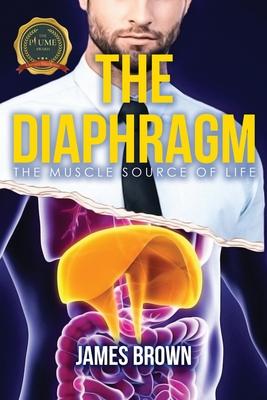THE DIAPHRAGM- The Muscle Source of Life is about the significant role of our muscular thoracic diaphragm. Since the diaphragm is a muscle, its function is limited to a contraction and a relaxation of its muscle fibers. Yet the effects on the body from this simple function of the diaphragm allows the sustaining of the existence of life and function. The Diaphragm- The Muscle Source of Life details information about how crucial the diaphragm's function is in the role in the support and existence of life. The diaphragm is that important of a skeletal muscle such that it is the only skeletal muscle which has somatic (voluntary, conscious) nervous control is still heavily controlled by the autonomic (involuntary, unconscious) nervous system. These two nervous systems are responsible in helping to maintain a continuously working respiratory system with their regulation of the diaphragm. This combination of influence helps to maintain a relatively continuous flow of air into the body containing life giving oxygen, in the form of oxygen gas, and qi/chi(life-force) for the body upon the contraction of the diaphragm. This life-giving oxygen is a very crucial component for production of energy in the body. Unfortunately, with the production of energy comes the production of metabolic wastes, which must be removed from the body. Fortunately, this same combination of influence on the diaphragm by the nervous systems helps to maintain a relatively continuous flow of air out of the body which is necessary for the removal of metabolic wastes such as carbon dioxide in the form of carbon dioxide gas.
The diaphragm being in many ways the most important skeletal muscle for the preservation of life is often the one most overlooked. In addition, beyond the effects of breathing alone The Diaphragm- The Muscle Source of Life details how the diaphragm supports heart function and how the diaphragm has the potential to increase the efficiency of the heart, lungs, brain, kidneys, and immune function with voluntary engagement of the contraction of the diaphragm. Voluntary engagement refers to a contraction of the diaphragm that goes beyond the involuntary contraction of the diaphragm that we experience with normal breathing. Because the diaphragm is the muscle that gives us access to oxygen it should be strongly considered for increased health, power, longevity, and spirituality. The somatic or voluntary function of the diaphragm is one that has the potential to level the playing field for everyone, as the efficiency of the body is dependent upon its own oxygen availability which then has a direct effect on its energy availability, which is directly controlled by the function of the diaphragm.
There are also simple exercises detailed to perform for the strengthening practice of the diaphragm that does not require strenuous exercise and can be practiced just about anywhere as long as you bring your diaphragm with you, just kidding. These exercises, however, require the engagement of the somatic or voluntary conscious control to help maximize the function of the diaphragm. In its support with breathing, maximizing the function or contraction of the diaphragm will not only make the diaphragm stronger but it will also help to maximize the intake of oxygen, maximize the movement of certain crucial fluids in the body as well as maximize removal of wastes predominately carbon dioxide helping to maintain a healthy normal pH of the blood.
